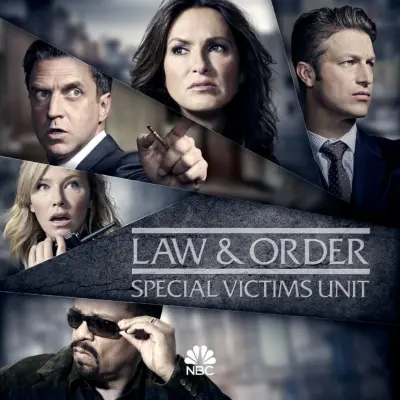Former Law & Order: SVU boss: If I had to go back, I wouldn't show Elliot Stabler beating up suspects
-

Neal Baer, who was SVU's showrunner for 11 seasons. says if he had to go back, he would change how some of the cop characters were portrayed. “If I were back on SVU, I would address the aspirational elements on the show,” says Baer, reflecting on how the Black Lives Matter protests have shined at spotlight on TV's positive police depictions. “I think the show is very important in depicting victims of what were once thought unspeakable crimes; now they are crimes that are talked about. It was a really important conduit for that. But on the other hand, Elliot Stabler was smacking people around, and I wouldn’t do that now.” Darnell Hunt, dean of social sciences and professor of sociology and African American Studies at UCLA, says “roughing up perps” has long been part of the territory when it comes to cop shows, and that has influenced how Americans see cops. “CBS, has CSI and NCIS, NBC has Law & Order and Chicago P.D. All those crime shows that have repeated over the years tend to skew older, tend to skew whiter,” Hunt says. “If you’re being fed a diet of television shows, crime procedurals, movies that reinforce this idea of rampant, out-of-control crime and the need for the thin blue line to keep everything together, you’re going to watch those types of shows because they’re consistent with your worldview, and you’re probably going to vote against things that might lead to more inclusion and integration because you fear being in those types of communities. It becomes this vicious cycle.”
ALSO:
- A big problem with cop shows is the portrayal of bad cops as good: "The 'good rogue' cop comes in a range of flavors from disgusting to delightful but remains popular across the spectrum," says Robert Lloyd. "(They are almost always detectives; uniformed police are bit players in most shows.) On the low end, there is the thug with a badge, who breaks the rules to do the job the bureaucracy is too petrified to handle, bringing order through violence and intimidation. (Say, Michael Chiklis’ LAPD Det. Vic Mackey, in The Shield, based on L.A.’s morally fraught Rampart Division.) At the other end is a scamp, a trickster with a badge, who breaks the rules to do the job the bureaucracy is too hidebound to handle, bringing order with a wisecrack and a laugh. (See: Andy Samberg’s Jake Peralta on Brooklyn Nine-Nine, based on Barney Miller.) Most fictional police detectives occupy this space at some time, often to the frustration of their superiors, and sometimes to the thanks of a grateful citizenry, with some contextually acceptable degree of collateral damage. Our worship of the rule breaker is key to the American self-image, which so easily slides into American selfishness. (It’s why, for instance, we are so terrible dealing with COVID-19 and will never have universal healthcare.)"
- Hollywood is reexamining its working relationship with cops amid calls to defund the police: "Numerous industry players described to Variety a symbiotic bond between the two institutions, one born of practicality and, often, necessity," says Matt Donnelly. "Police assist in nearly all film and television shoots outside of studio sets. They provide security for top talent at home and in public, serve as backup for glitzy red carpets and look on when the town parties during awards season. #BlackLivesMatter co-founder Patrisse Cullors tells Variety that she sees leverage in that...From a production standpoint, uniformed police both on and off duty are fixtures on set, one top production coordinator says, speaking on the condition of anonymity. From basic safeguarding to street closures, cooperation with the LAPD and forces including the West Hollywood Sheriff’s Office and the Beverly Hills Police Department is mandatory. Those agencies also issue basic permits for shooting, and coordinate efforts to inform businesses and residences about movie and TV stars invading the block. Officers are compensated out of production budgets for their time and are said by many people Variety spoke with to enjoy the work as a perk of living in an industry town."
TOPICS: Law & Order: Special Victims Unit, NBC, George Floyd, Neal Baer, Black Lives Matter
More Law & Order: SVU on Primetimer:- Law & Order: Special Victims Unit stars reunited at the Emmy Awards, sharing the moment in new photos and video
- Watch, Listen, Repeat: The Best TV Rewatch Podcasts
- Richard Belzer Was Always a Comedian First, John Munch Second
- Mariska Hargitay Pens Heartfelt Tribute to Law & Order: SVU Co-Star Kelli Giddish
